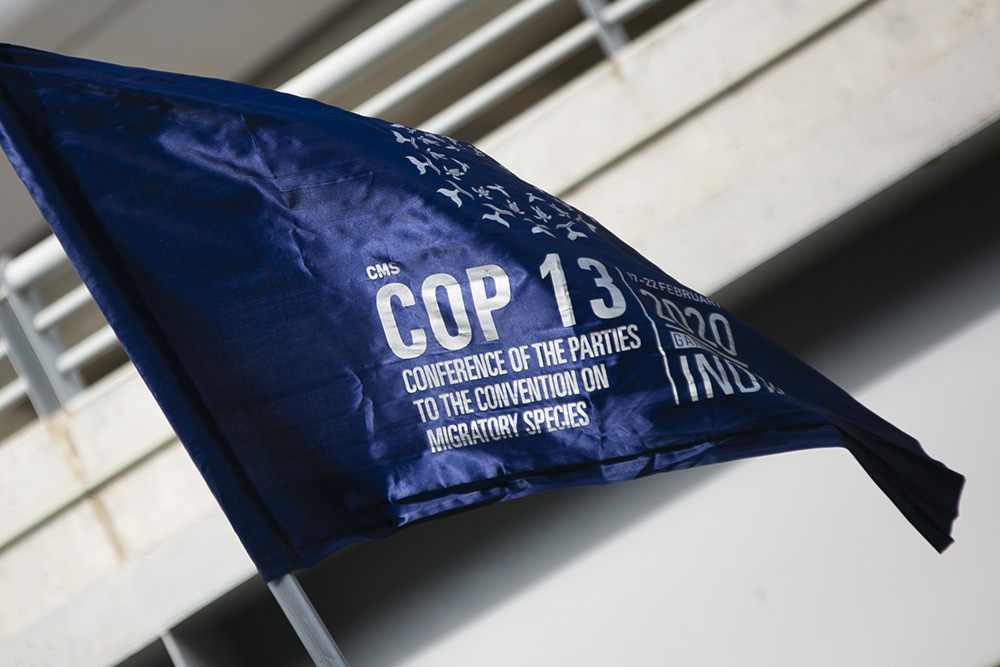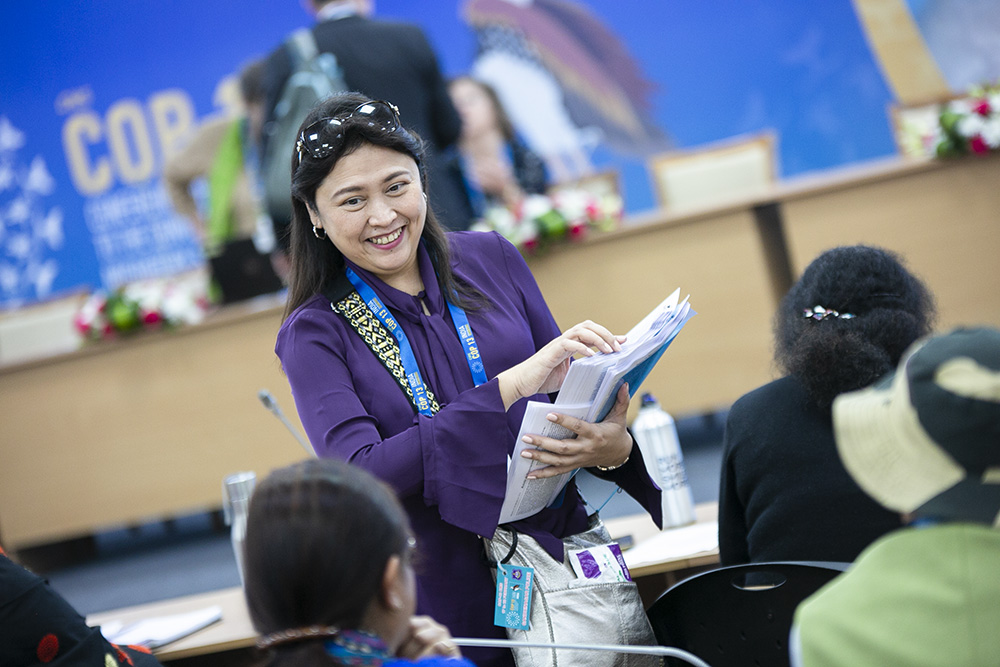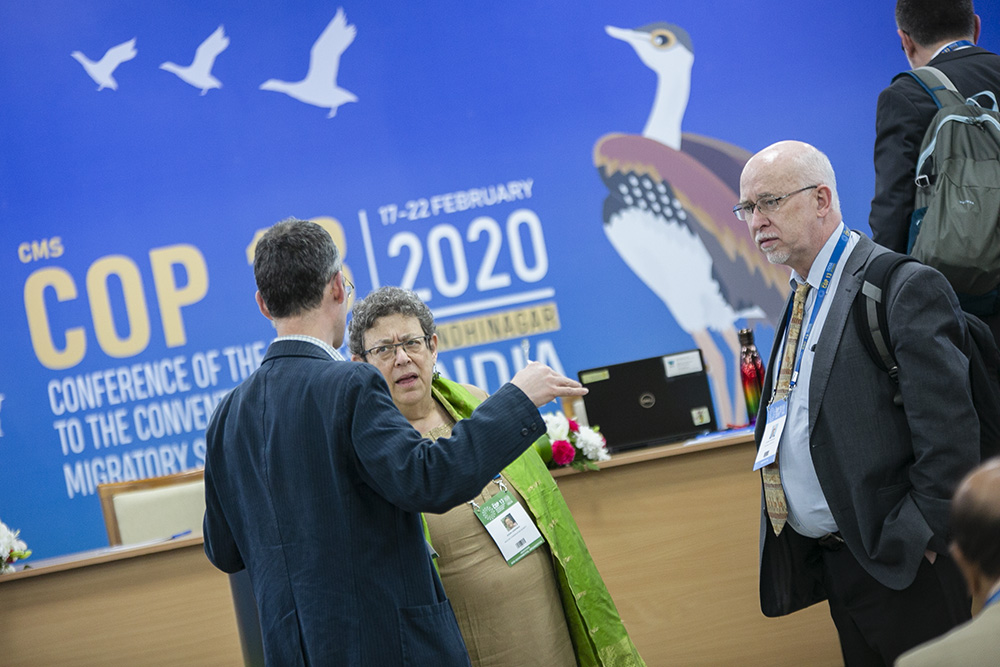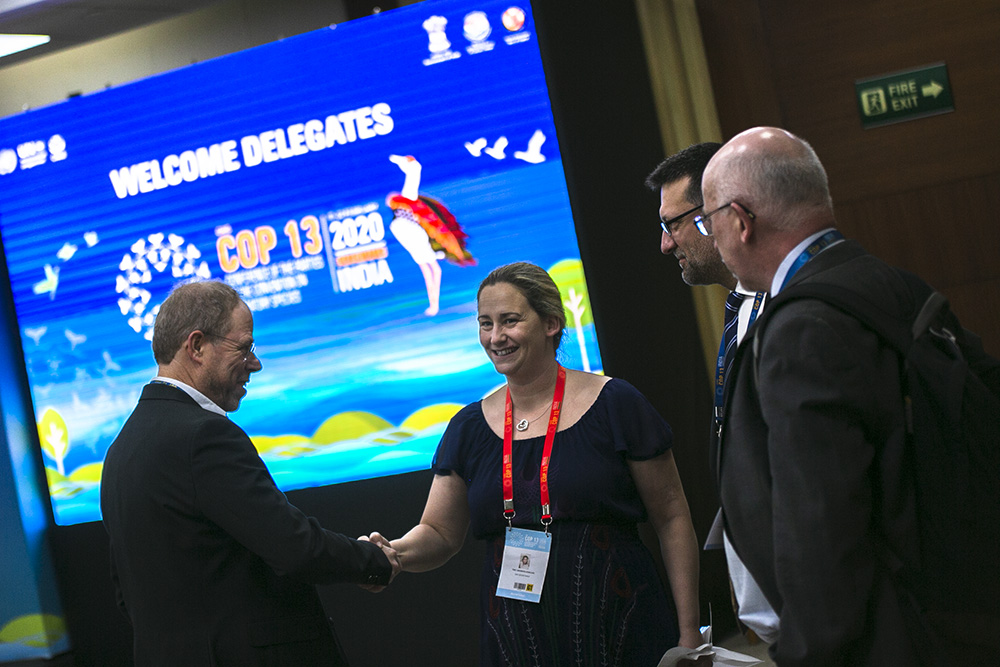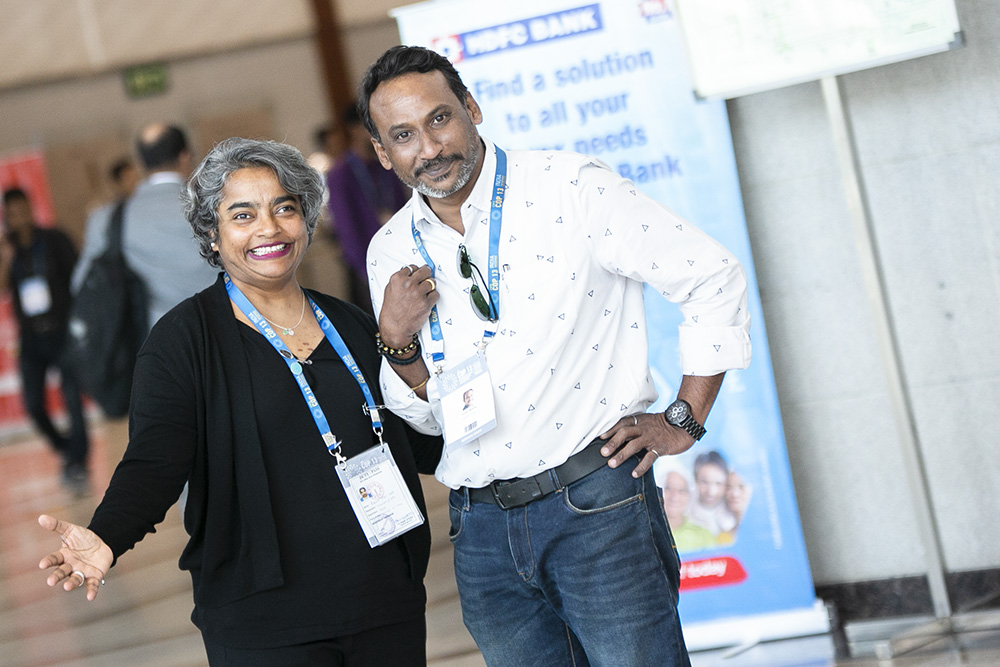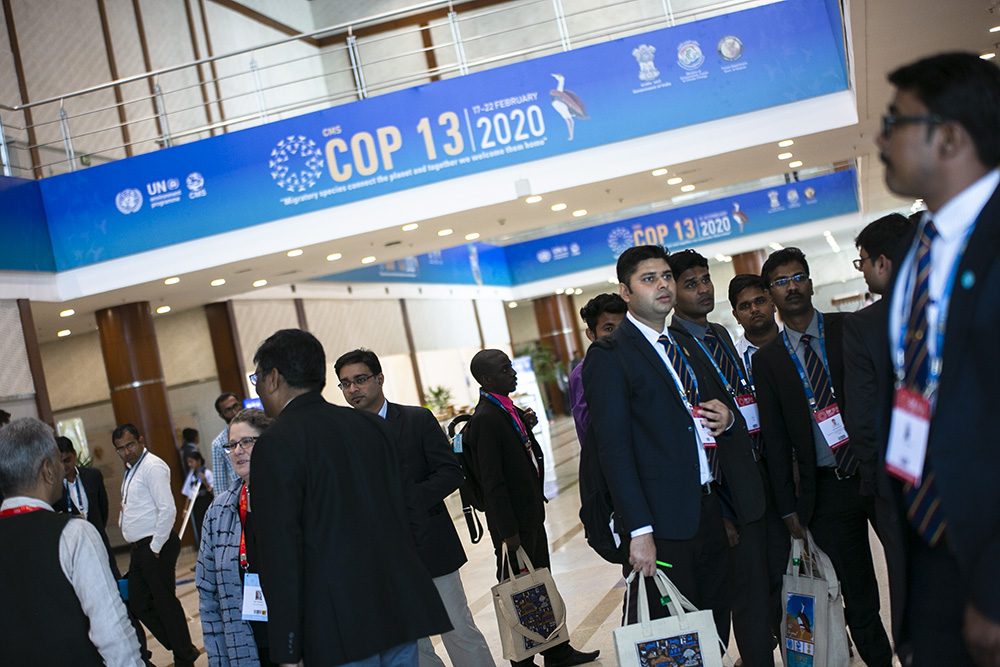Summary
Highlights for Saturday, 15 February 2020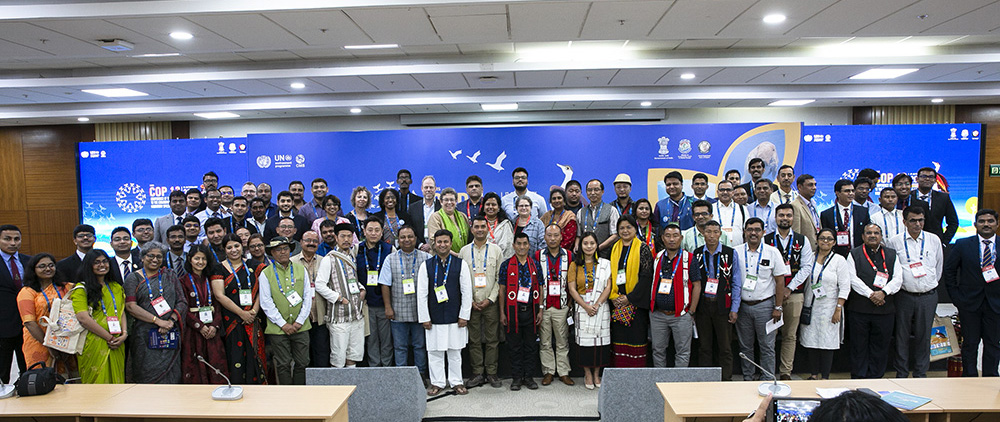
Member states, non-governmental organizations and intergovernmental organizations convened in the afternoon for a Stakeholder Dialogue on the Post-2020 Global Biodiversity Framework, part of a series of events held prior to the thirteenth meeting of the Conference of the Parties to the Convention on the Conservation of Migratory Species of Wild Animals (CMS COP13).Soumitra Dasgupta, Ministry of Environment Forest and Climate Change, India, welcomed participants and highlighted that India’s commitment to protecting wildlife is ingrained in its constitution. He noted the importance of community partnerships for wildlife conservation, emphasizing that he has seen former poachers transformed into "ardent protectors" of wildlife. Jochen Flasbarth, Federal Ministry for the Environment, Nature Conservation and Nuclear Safety, Germany, emphasized that CMS can act as an ambassador for multilateralism, since it is easy to understand why collaboration between states is required to protect migratory species.Sue Lieberman, Wildlife Conservation Society, stressed the importance of CMS COP13 in raising the visibility of migratory species issues at the fifteenth meeting of Conference of Parties to the UN Convention on Biological Diversity (CBD COP15) in 2020 in Kunming, China, which will adopt a Post-2020 Global Biodiversity Framework.Amy Fraenkel, CMS Executive Secretary, reviewed CMS’ engagement in the development of the Post-2020 Global Biodiversity Framework, stressing the “once in a decade opportunity” that CBD COP15 presents to fill gaps in the global biodiversity agenda. Nicola Crockford, Royal Society for the Protection of Birds, highlighted the crucial role of NGOs and civil society across the international and national level. Ward Hagemeijerm, Wetlands International, expressed concern at the lack of public attention awarded to biodiversity, fearing that people take it for granted, remaining oblivious to how we depend on it and are impacted by its loss. The panel then engaged in a discussion with the audience. Sonali Ghosh, Ministry of Environment, Forest, and Climate Change, India, introduced the open discussion which explored how:
In closing the Stakeholder Dialogue, Sue Lieberman emphasized how conservation of migratory species is about connectivity; connecting people and connecting wildlife, as well as engaging with local communities and governments.For more details on the day’s negotiations and to hear what delegates said in the corridors, see our daily Earth Negotiations Bulletin.
IISD Reporting Services, through its Earth Negotiations Bulletin (ENB) Meeting Coverage, has provided daily web coverage, daily reports, and producde a summary and analysis report from CMS COP13 which is now available in HTML and PDF.
Photos by IISD/ENB | Sean Wu
For photo reprint permissions, please follow instructions at our Attribution Regulations for Meeting Photo Usage Page
Stakeholder Dialogue
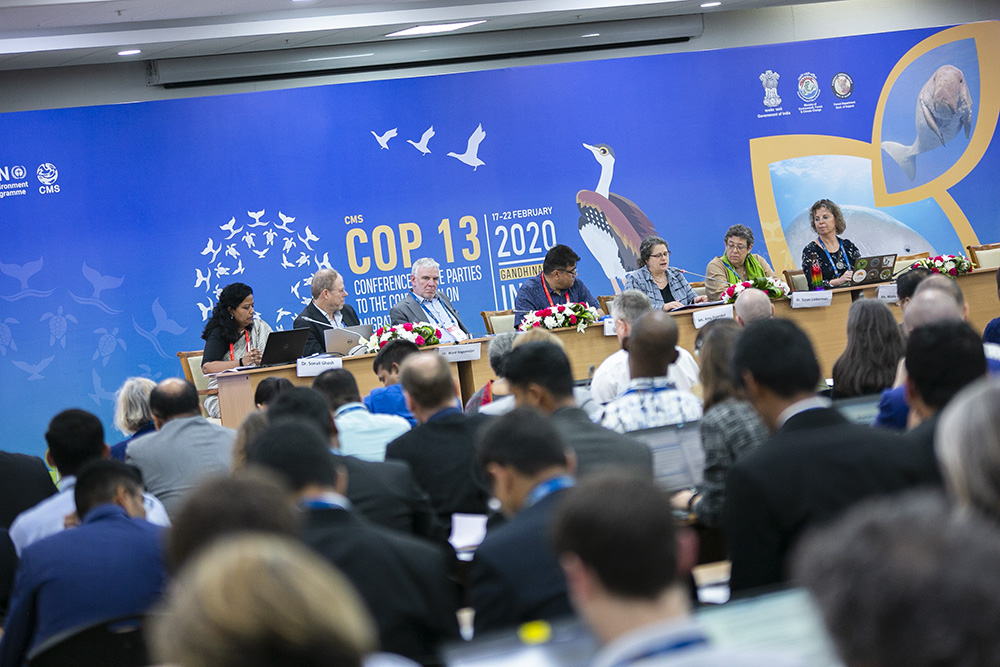
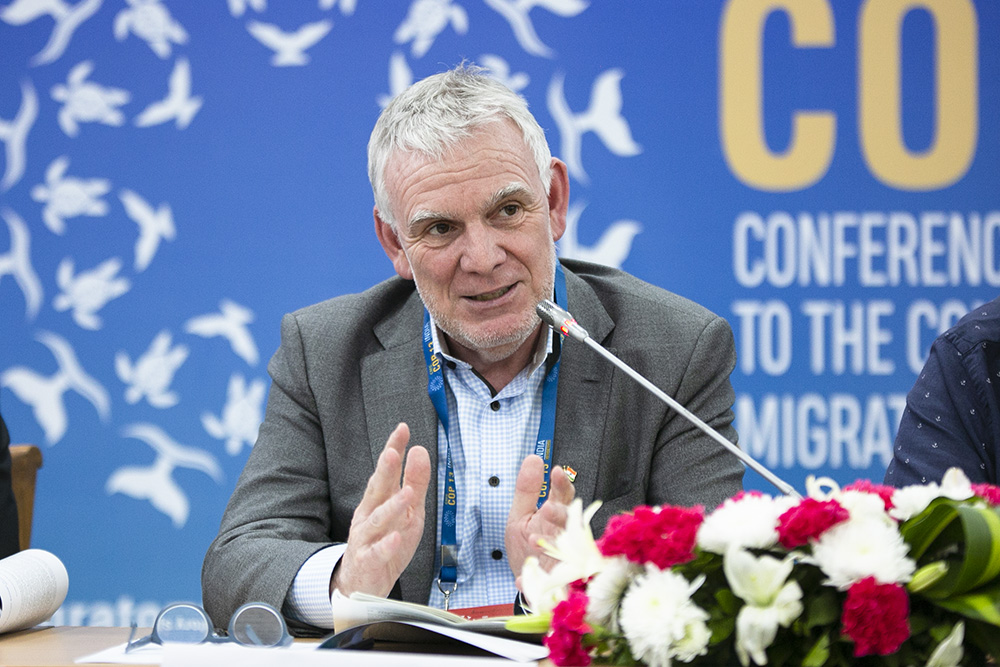
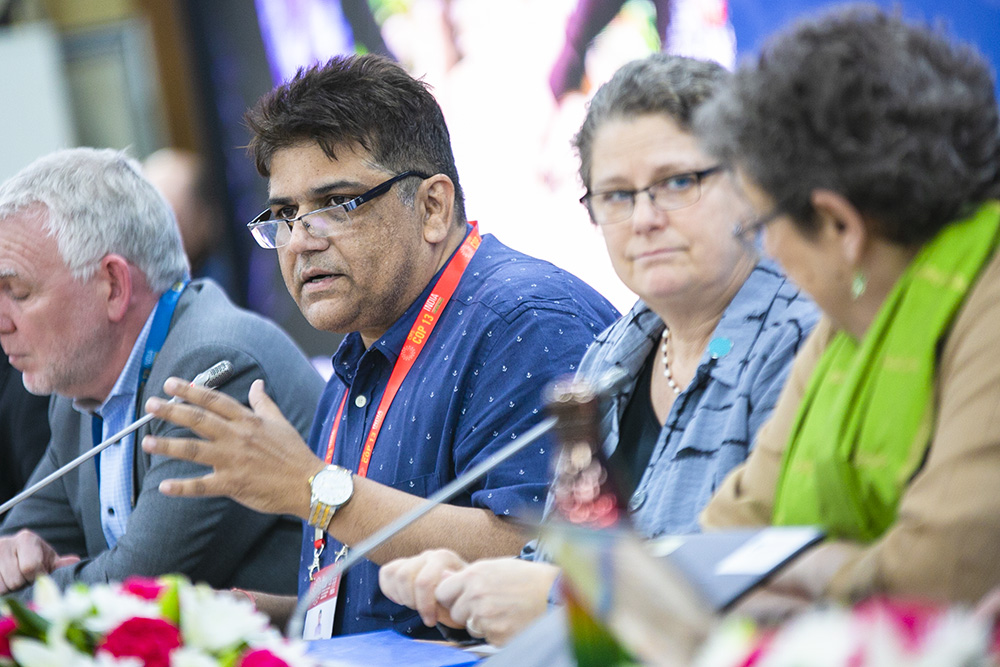
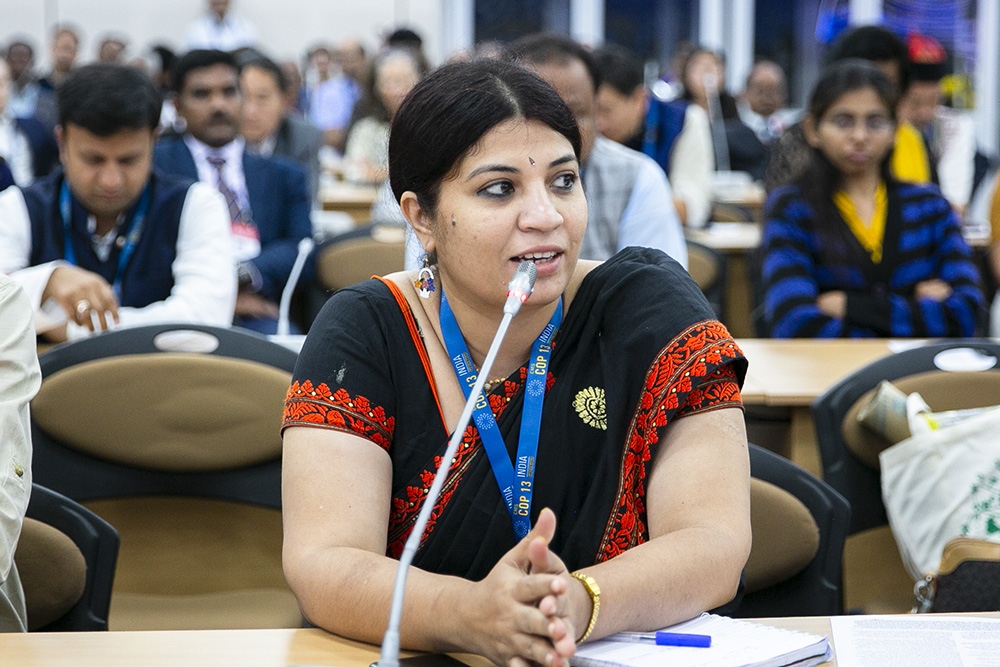
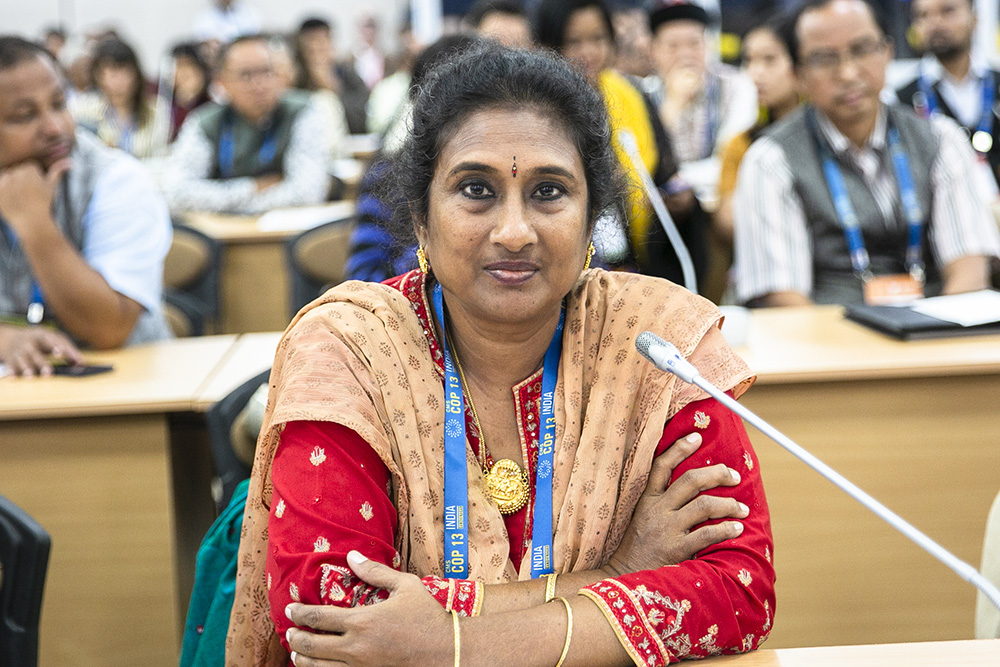
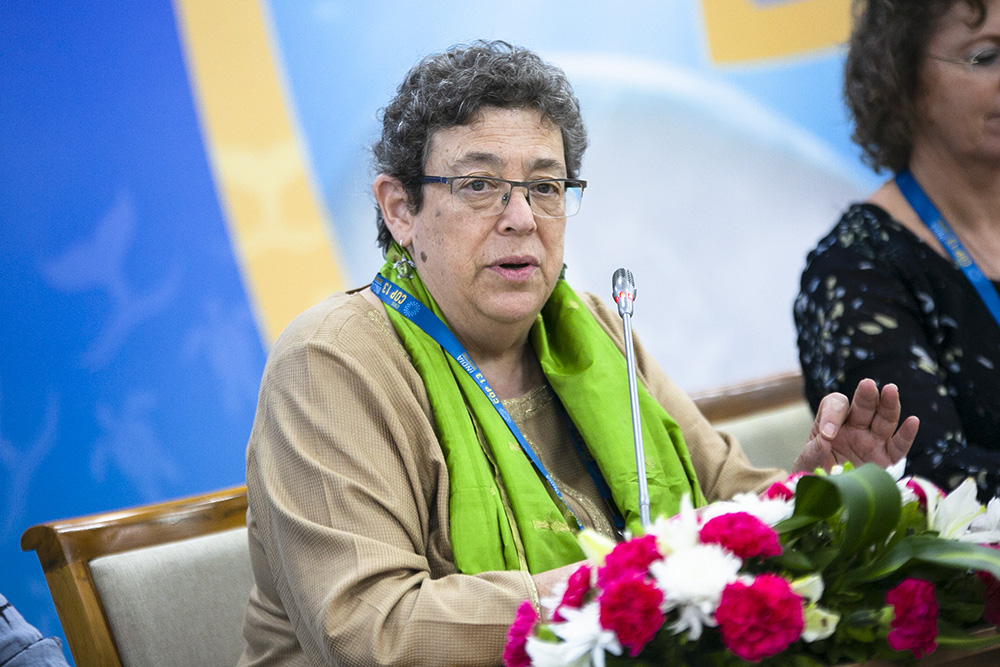
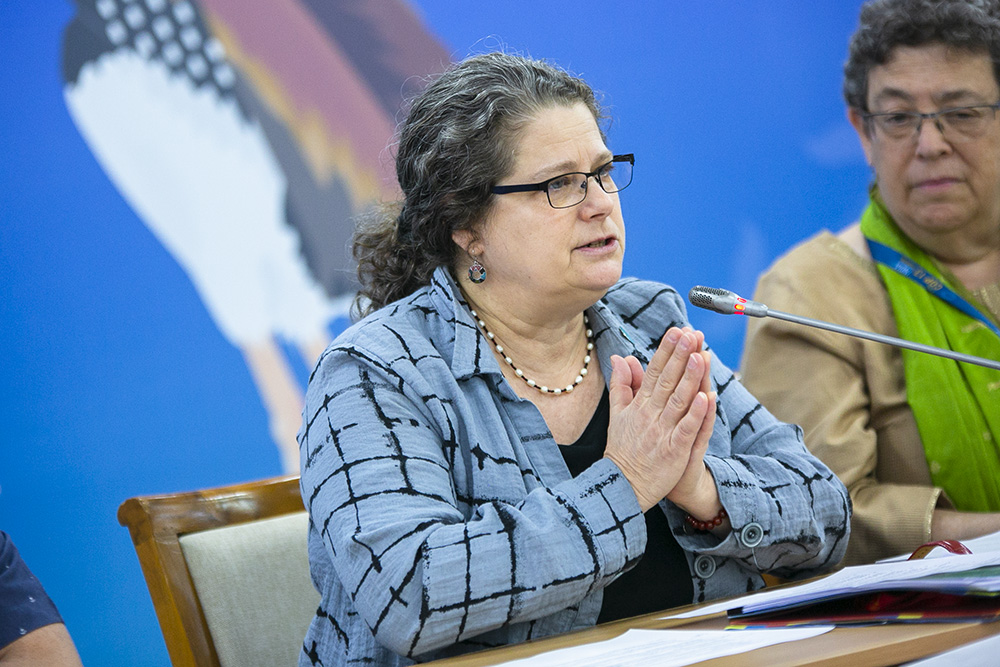
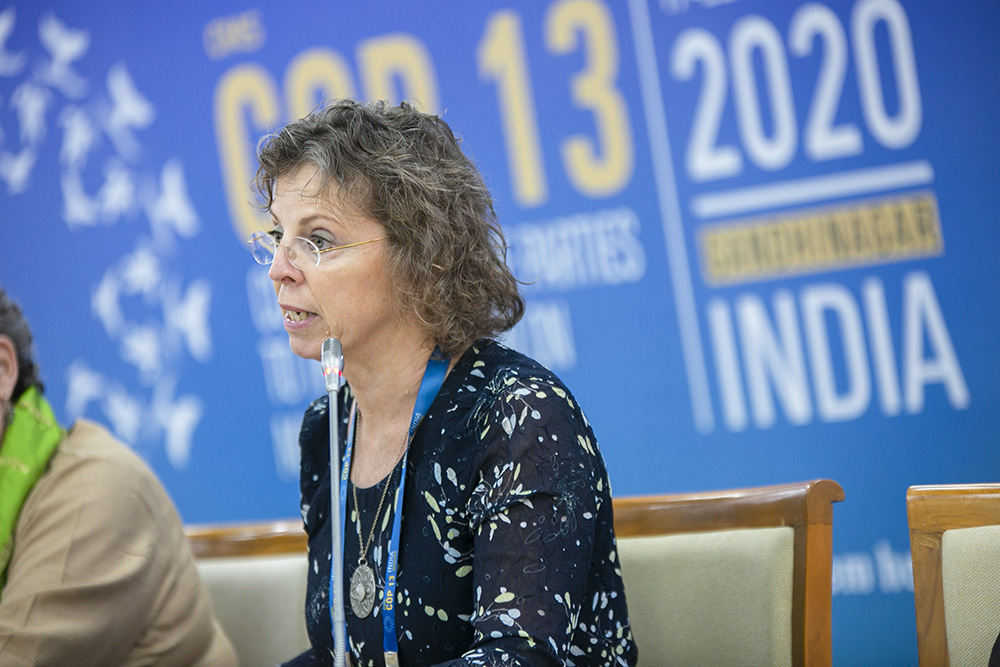
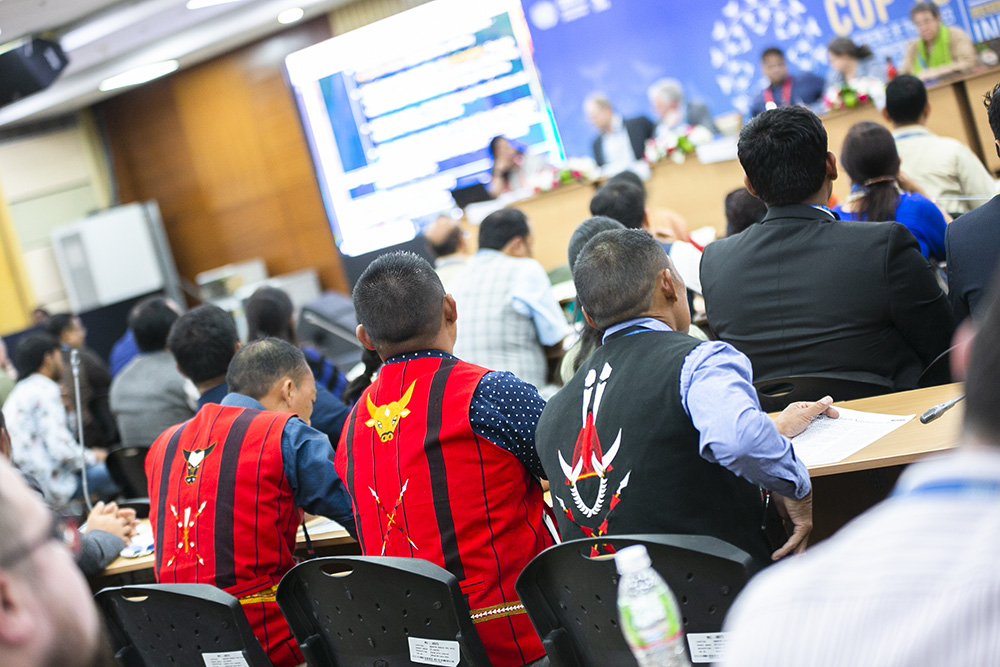
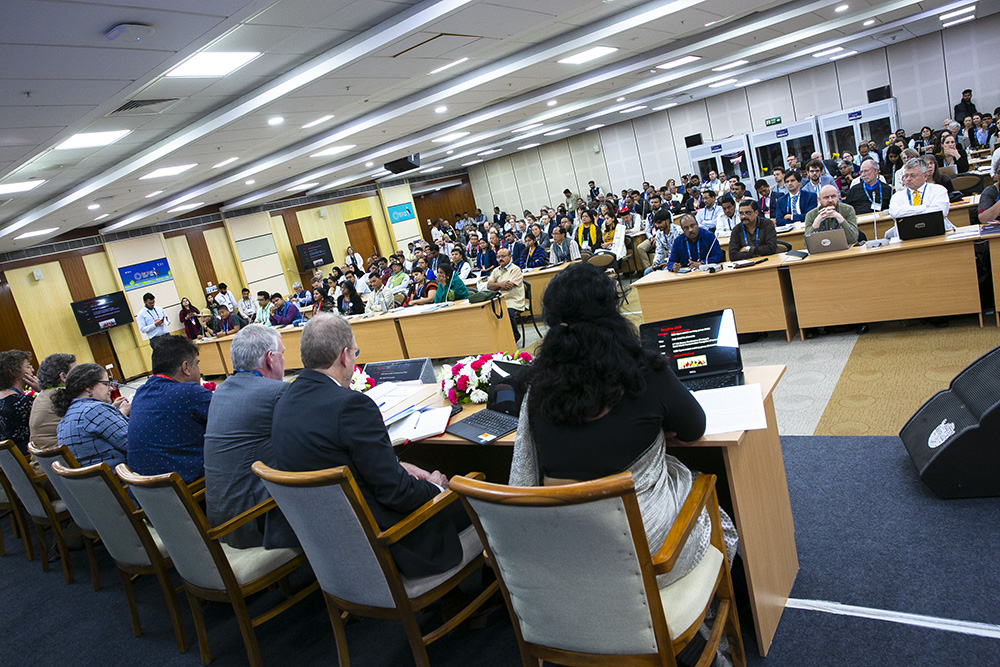
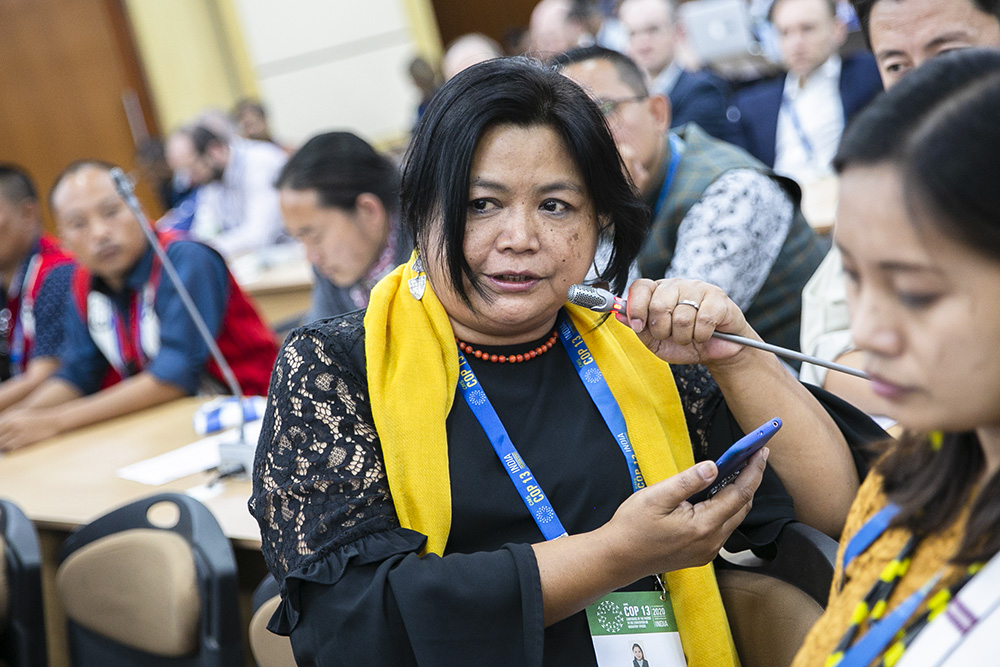
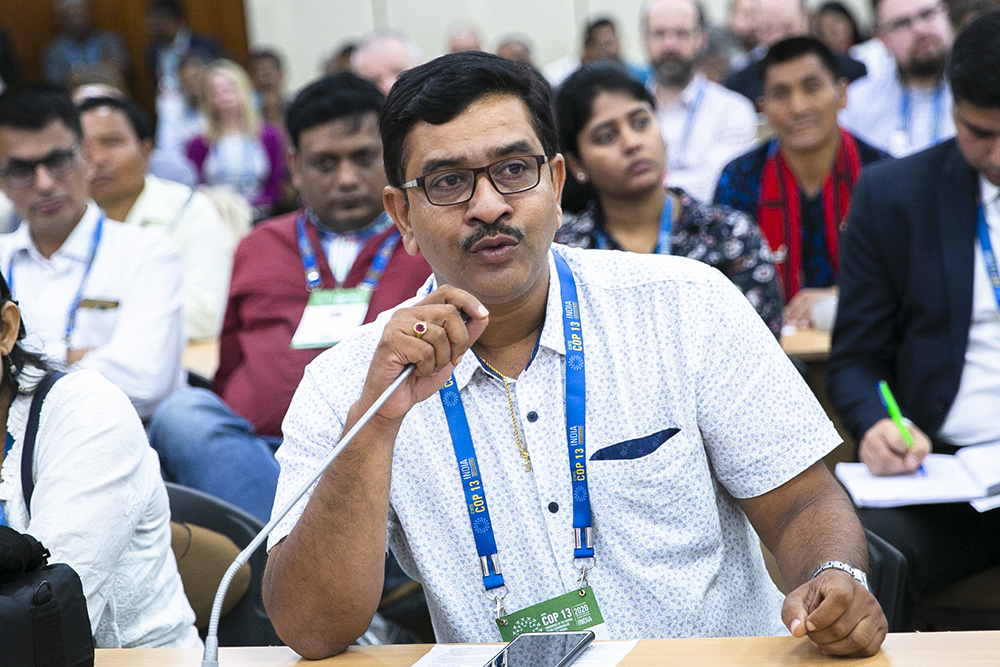
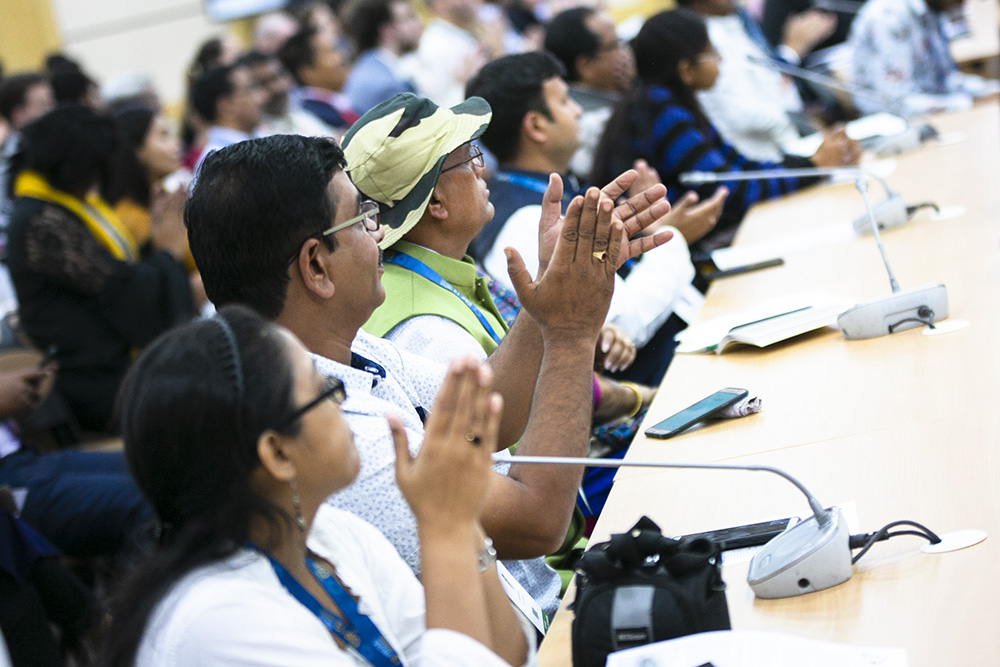
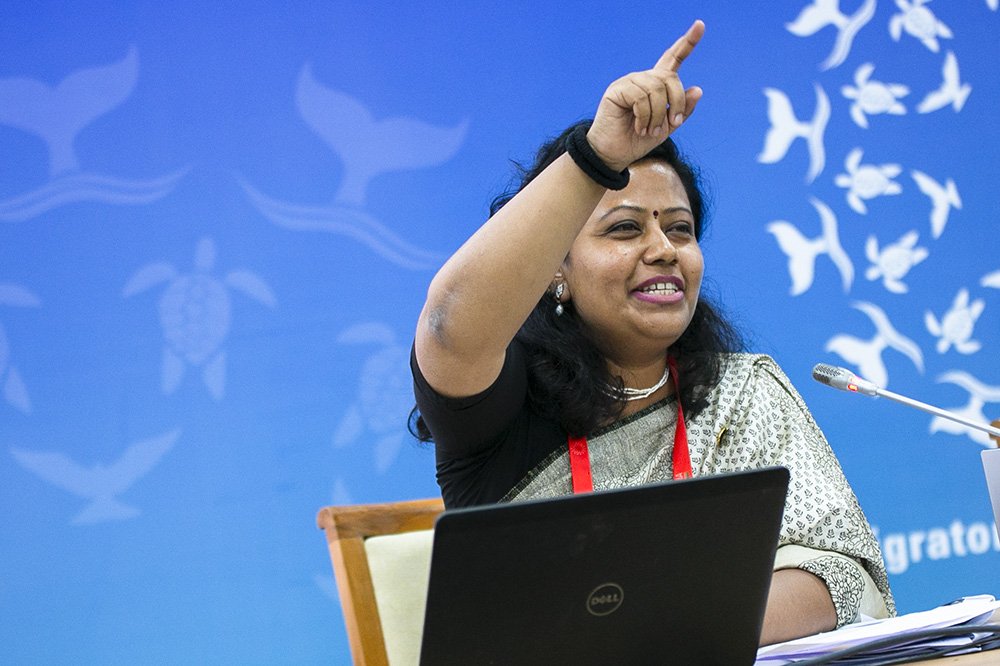
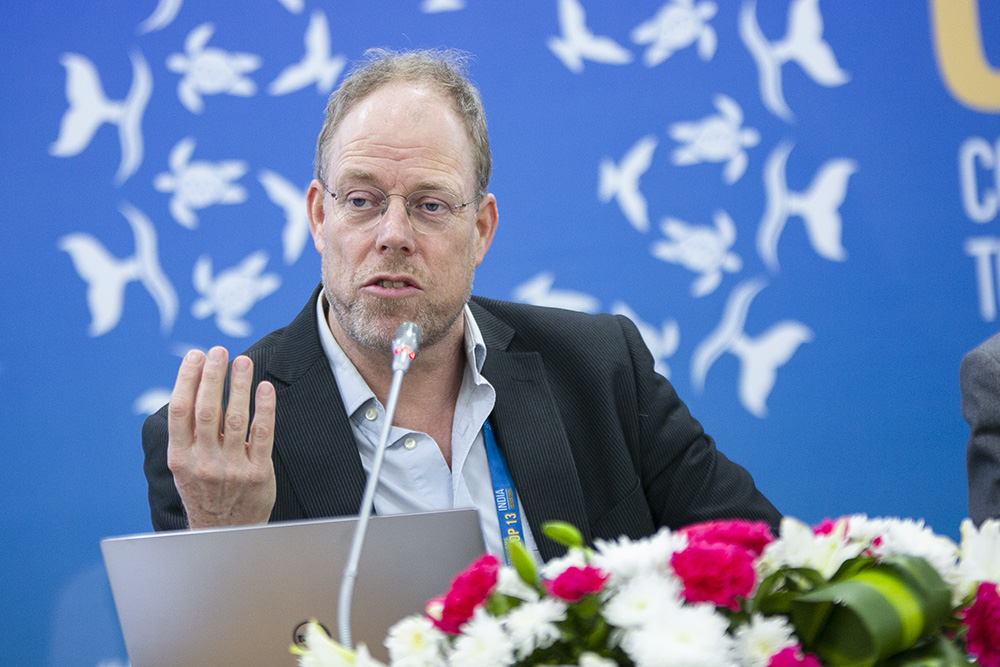
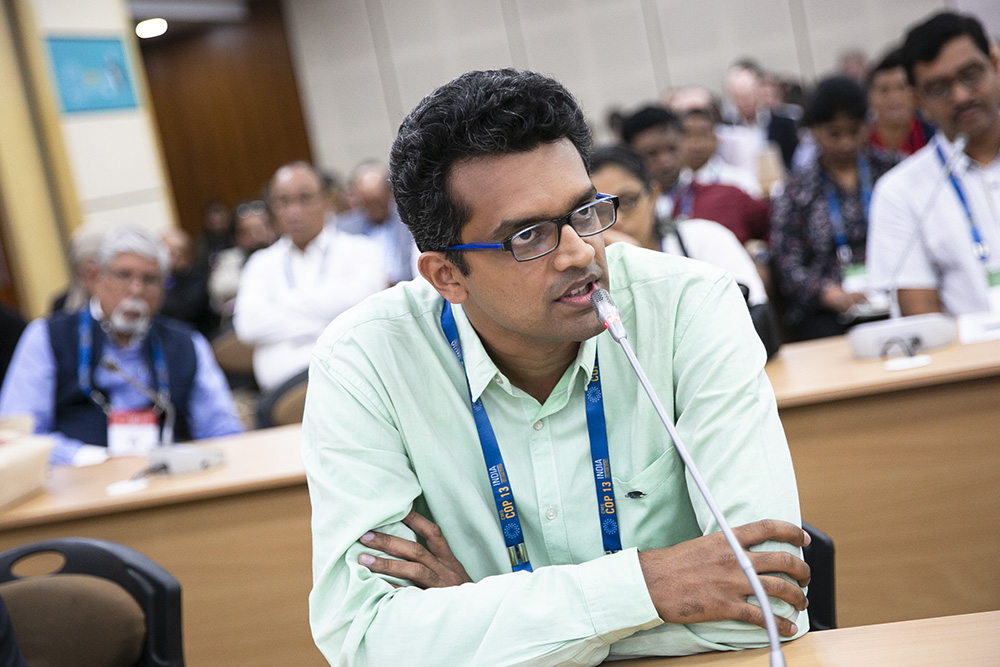
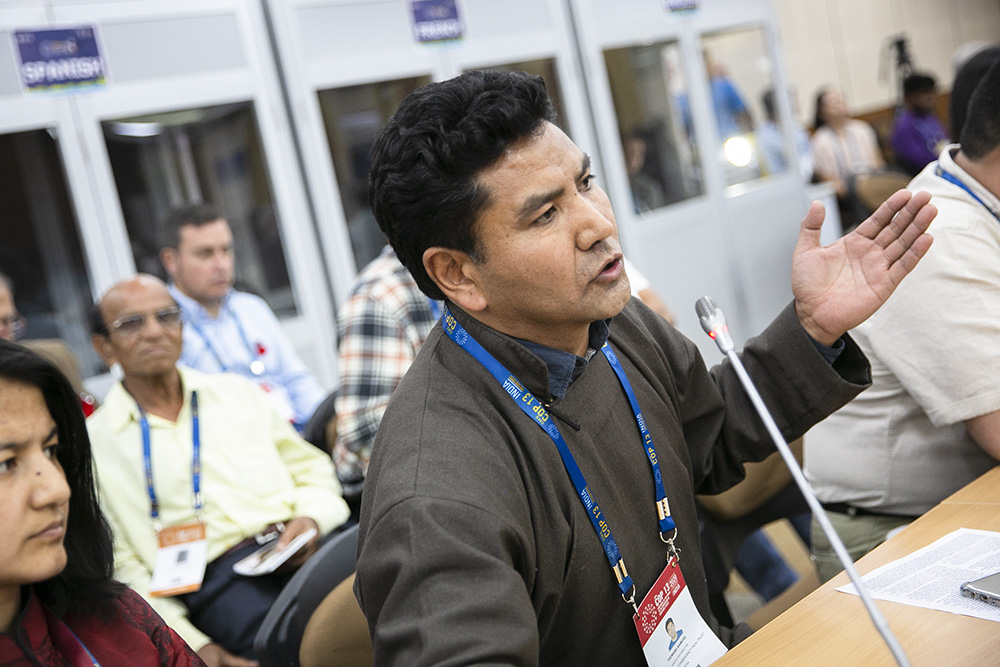
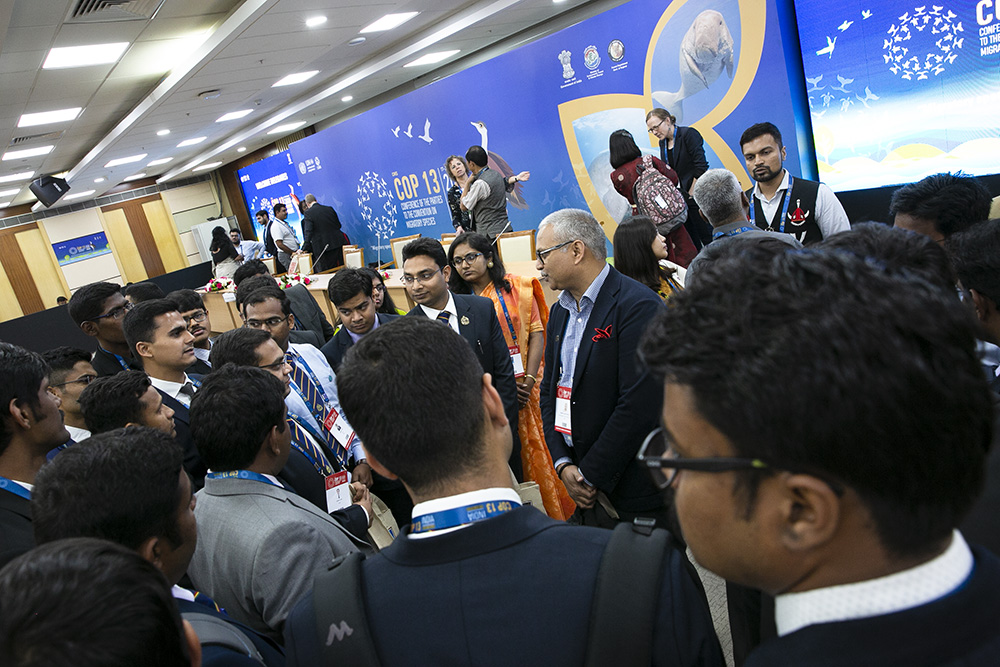
Around the Venue
